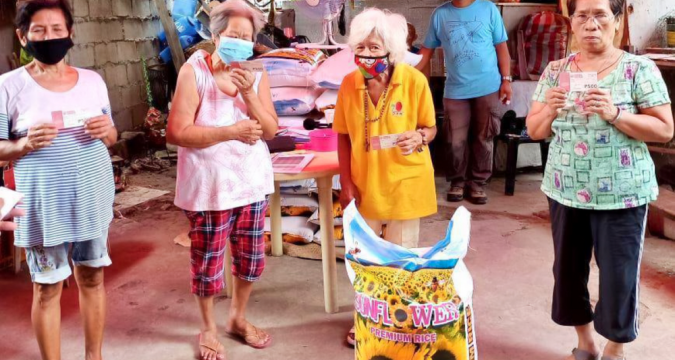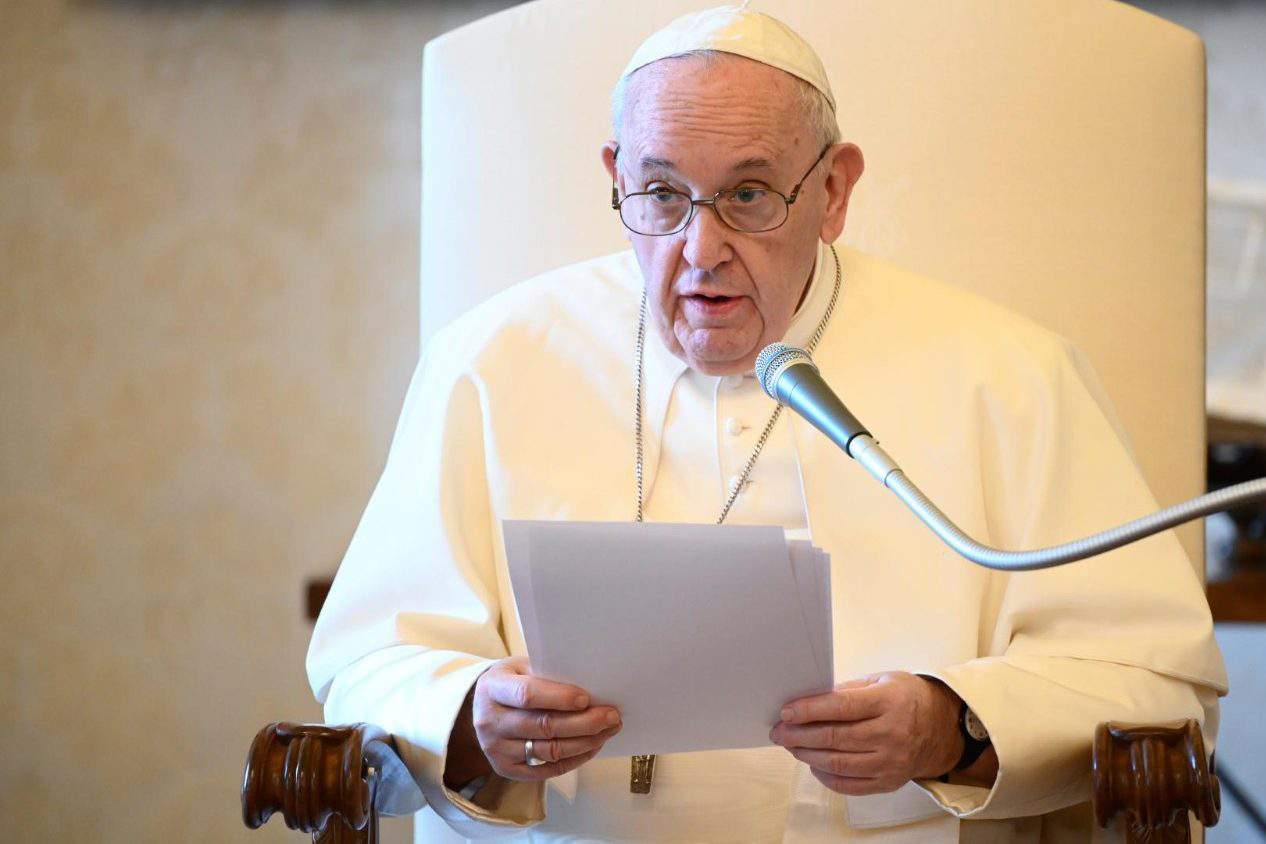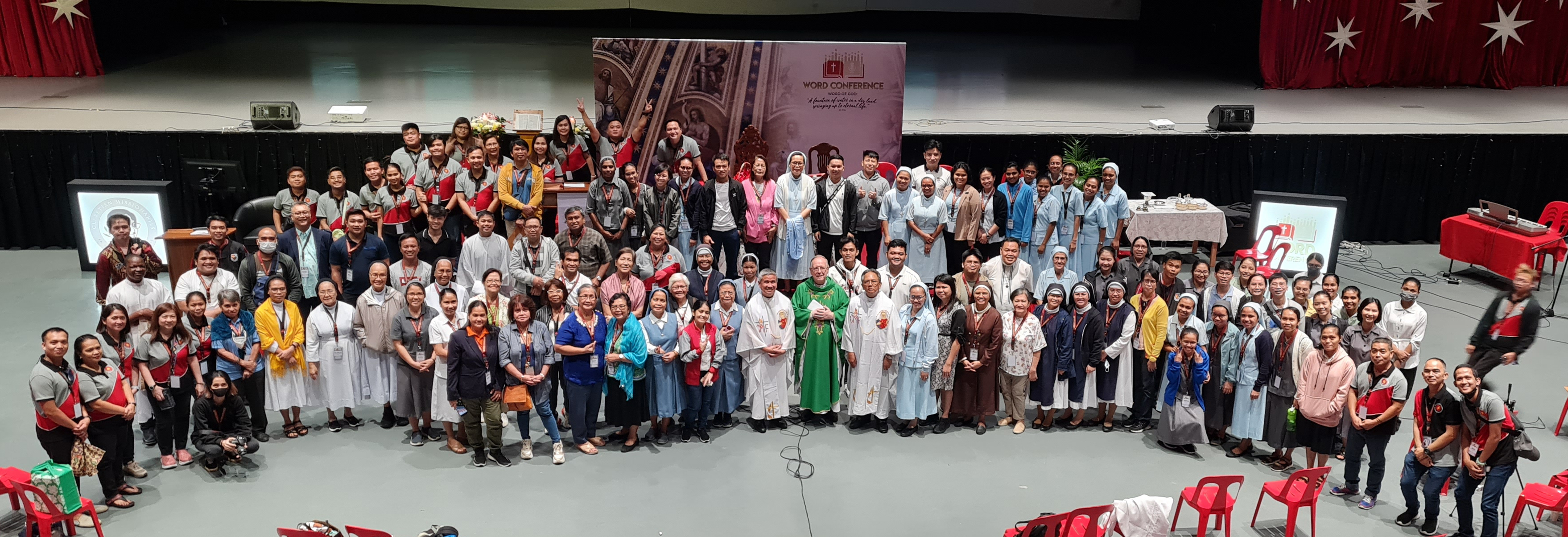
Recent years have not been easy for the Philippines owing to numerous disasters and natural calamities. The past decade witnessed how the people collectively hurdled the atrocities brought by Super Typhoon Haiyan (Yolanda) in 2013 and the devastating earthquake in 2017 which both occurred in Ormoc City, Leyte, in the Visayas region, to be exact.
During the past couple of years of natural disasters, the Claretian (CMF) community in Ormoc provided shelter assistance to more than 1,500 families, all located in outskirts areas. Modest livelihood assistance through the distribution of livestock and farming products was initiated to help get these communities back on their feet.
While Ormoc struggles with natural calamities, down south in Mindanao, the missionaries are in a state of vigilance to contribute to the preservation of peace and order. The challenges for human development in this region are tangled with the reality of living in a multicultural milieu, diversity of language and faith (Muslims, Christians and indigenous people) and the long history of violence, aggravated by the propagation of terrorist extremism in recent decades.
The start of 2020 had been challenging for the people of the Philippines, beginning with the eruption of Taal Volcano in January. Taal is a town in Luzon, the northern part of the country closer to the national capital, Manila. The Claretian postulancy house (seminary) sits very close to this area. The missionaries mustered resources and manpower to help the survivors and their communities.
The Immaculate Heart of Mary Parish in Quezon City, was turned into the command centre to gather relief goods for distribution to the affected areas.
Even while the volcano was still belching smoke and ashes, news came of an impending pandemic, this time threatening the whole world. The Covid-19 coronavirus (SARS-CoV-2) pandemic caught our healthcare workers and government agencies flatfooted and unprepared. Once again, Church groups and religious communities gathered their spirits and best efforts anew to pastorally respond to the situation.
Manila became the country’s epicentre of infections and, in the month of March, the government declared a nation-wide quarantine. Immaculate Heart of Mary Parish (IHMP) in the Diocese of Cubao, and St. Anthony Mary Claret Parish (SAMCP), in the Diocese of Novaliches, both in Metro Manila, were opened up as centres of relief operations and temporary shelter for frontline healthcare workers. IHMP offered board and lodging to nurses and other hospital support staff, and even transportation to the medical facilities where they are deployed.
The fight against this pandemic is far from over. Cases of persons testing positive with the virus is escalating day by day. Today, the Philippines has the highest number of positive cases in the entire Southeast Asia.
From the beginning of the lockdown, the missionaries and volunteers have been engaged in supplying food and provisions to the most vulnerable sectors among informal settlers—the elderly, the children, persons with disabilities and illnesses, daily-wage earners—all affected by the mandatory quarantine and lockdown up to this time.
Quezon City, where these two parishes are located, is the most densely populated area in the entire metropolis. The two parishes combined are caring for thousands of families who are in informal settlements (slums). Assistance in the form of food vouchers, food packs, milk and diapers for children are being supplied.
Reaching out to thousands of beneficiaries, the missionaries are directly involved in relief operations, preparing meals, lodging, sewing facemasks and personal protective equipment (PPE), distributing food vouchers and offering counselling and first-aid across the country.
The fight against this pandemic is far from over. Cases of persons testing positive with the virus is escalating day by day. Today, the Philippines has the highest number of positive cases in the entire Southeast Asia.
Families and communities continue to suffer the effects of the on-going quarantine. The economy is getting depleted. Millions cannot go back to work yet and many have already lost their jobs. Some families have turned to begging while many rely mostly on subsidies and dole-outs provided either by the government or non-governmental agencies.
Faced with this dark reality of increasing number of Filipinos, mostly from the poorer communities, becoming sick or dying in an economy that is spiralling down, and a medical system that is very poor and unprepared, the entire country is facing anguish, fear and insecurity, a direct assault to life and existence, an issue of survival.
Our resources are scarce, but this scarcity was never a deterrence to the spirit which calls us to make a qualitative missionary response that is timely, effective and urgent.
We recognise the help coming from some government offices, other private sectors and organisations, private persons, benefactors, sponsors, friends and parishioners—and to them we are grateful. Hats off, too, to our local religious communities who, in the spirit of shared mission and solidarity, shared whatever resources they have to help our missions in the peripheries.
We have a mission well defined with two criteria: First, our mandate to help the poor, the vulnerable and the disadvantaged. Second, acting and responding to the needs of our people, with the grace of being a missionary community. If you wish to be part of the mission, you may get in touch with the Claretians in the Philippines: larryvmiranda@yahoo.com.ph
Father Larry V. Miranda CMF, is the person-in-charge for the social welfare apostolate of the Claretian Missionaries in the Philippines. He is coordinating the relief and support works for the people affected by the Covid-19 pandemic.










